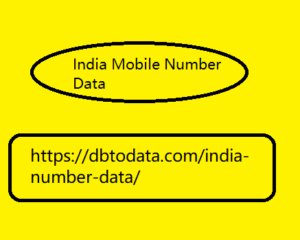Post by account_disabled on Mar 10, 2024 9:09:54 GMT
Gartner has released a new report on digital marketing trends , based on its now classic Hype Cycle model. The idea is to represent the diffusion of technologies by considering the various hype phases: Innovation trigger is the moment of launch of an innovation, when uncertainty reigns and it is difficult to obtain visibility Peak of inflated expectations is the peak of hype when all the media is talking about it and expectations are high Trough of disillusionment represents the phase of disillusionment, that is, the understanding of the real pros and cons of technology Slope of enlightenment is the lowest point of expectations and also of media visibility Plateau of productivity marks the phase of productivity achievement, i.e. the one in which innovation becomes widely accepted and used.
2020 and the beginning of 2021 were characterized by companies' attention to India Mobile Number Data customer retention strategies in a pandemic period of uncertainties and budget cuts (marketing went from 11% of revenues to 6.4% , according to Gartner's CMO Survey ). Marketers will place a huge emphasis on acquiring new customers next year. To do this they will only have to invest in marketing technologies ( martech ), trying to understand how to apply Artificial Intelligence techniques to business problems. According to Gartner there is a great desire to try new things which clashes with the lack of talent and organizational complexities. 52% of marketers say they use Artificial Intelligence and Machine Learning, while 38% say they will.

The problem is that only 17% use solutions that cover all aspects of marketing, so these are only specific and timely applications. The priorities for Martech solutions The most current technologies that will reach mass adoption in less than two years are Multichannel Marketing Hubs (those software suites that promise to manage all points of contact with customers), Influencer Marketing and Social Analytics. The adoption of platforms for Account Based Marketing, of software for the precise analysis of the Customer Journey and of Mobile Marketing activities, of applications to automate marketing actions with respect to events that occur (Event-Triggered Marketing), of software that helps companies reconstruct the user's identity in a world without cookies (Identity Resolution Software), of Visual Search technologies for marketing. The longest-term innovations, five to ten years, but also the most transformative for companies will be those that use Artificial Intelligence to profoundly change marketing processes.
2020 and the beginning of 2021 were characterized by companies' attention to India Mobile Number Data customer retention strategies in a pandemic period of uncertainties and budget cuts (marketing went from 11% of revenues to 6.4% , according to Gartner's CMO Survey ). Marketers will place a huge emphasis on acquiring new customers next year. To do this they will only have to invest in marketing technologies ( martech ), trying to understand how to apply Artificial Intelligence techniques to business problems. According to Gartner there is a great desire to try new things which clashes with the lack of talent and organizational complexities. 52% of marketers say they use Artificial Intelligence and Machine Learning, while 38% say they will.

The problem is that only 17% use solutions that cover all aspects of marketing, so these are only specific and timely applications. The priorities for Martech solutions The most current technologies that will reach mass adoption in less than two years are Multichannel Marketing Hubs (those software suites that promise to manage all points of contact with customers), Influencer Marketing and Social Analytics. The adoption of platforms for Account Based Marketing, of software for the precise analysis of the Customer Journey and of Mobile Marketing activities, of applications to automate marketing actions with respect to events that occur (Event-Triggered Marketing), of software that helps companies reconstruct the user's identity in a world without cookies (Identity Resolution Software), of Visual Search technologies for marketing. The longest-term innovations, five to ten years, but also the most transformative for companies will be those that use Artificial Intelligence to profoundly change marketing processes.

